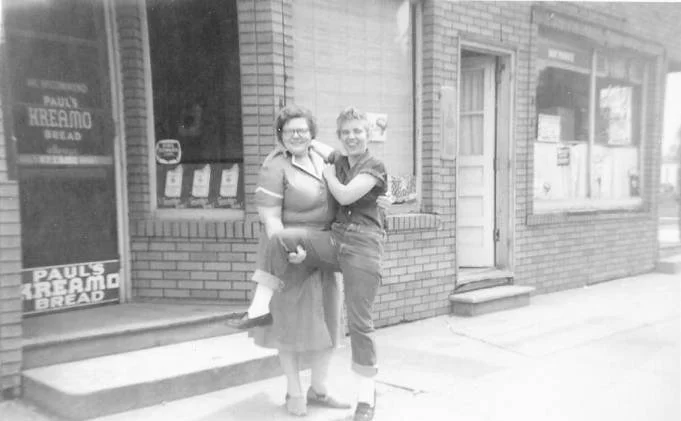The Werks Archive
Rooted in the performative nature of gender expression, DRAG has historically functioned as a potent vehicle for challenging hetero-normative constructs. It questions societal expectations and asserts the agency of marginalized communities. Drag has become increasingly visible in recent years through mainstream shows like “RuPaul’s Drag Race” and popular public events such as drag brunches, bingo, and story hours.
Dates
Fall 2023
Services
Visual Design
UI & UX Design
Brand Design
Tools
Figma
Photoshop
Illustrator
Indesign
Project Type
Masters Thesis
ARCHIVING SOUTH BEND’S
DRAG HISTORY
My exploration of Drag History, both in South Bend, Indiana and at the International Level has led me to a profound realization of its socio-cultural significance and the need to preserve the narratives of drag performers. I am exploring the archives as a means to safeguard and celebrate this vibrant cultural heritage. In this context, it serves as a visual and narrative repository, capturing the essence of drag's evolution and its broader implications.
Tools Used:
LEFT: Gloria Frankel and Partner
RIGHT: Seahorse Cabaret Stage
SOUTH BEND DRAGSTORY
In 1971, Gloria Frankel, a cab driver from New York City, established South Bend's first drag bar known as the Seahorse Cabaret.
Her visionary leadership and mentorship had a profound influence on the development and growth of Queer and drag spaces throughout the Michiana region. Beyond the glittering façade of sequins and performances, places like the Seahorse have become a symbolic stage where political activism and resilience converge. As we look back at Frankel’s career, we understand that she created multiple inclusive spaces that allowed community members to engage with more inclusive environments. Frankel’s story is a necessary pillar of South Bend's history.
The current spreadsheet exists as a repository of data, but data alone fails to capture the dynamic energy of spaces like the Seahorse Cabaret.
HOW MIGHT WE DEVELOP AN ARCHIVAL PROCESS THAT IS
VISUALLY ENGAGING
EASY TO UPDATE
INTEGRATES FILTERING
IN A WORLD
OF ARCHIVES
OUR COMPETITORS
I examined that there are many archives that exist throughout the United States as an effort to catalog queer history. However, while each of them showcases queer history, they often ignore the ability for user contributions. I concluded that any redesign needed to be easy to update and more accessible to a broader audience.
Typography
“Queering is a bold display typeface inspired by protest posters and queer publications. The name Queering comes from the activity of Queering a Space”
Information Architecture
Walking through the New Archive
Home page
The homepage gives an overall summary of the project, emphasizing the ability to elevate archives through the use of story telling and interactivity. It invites user to navigate a historic timeline of IU South Bend’s collection or allows them to contribute their own archival information.
It reflects the overall goal: Visibili-TEA, and then ends with the promotion of the archive website online.
Dragstory
We follow the narrative of the opening of the Seahorse. It follows Gloria Frankel’s mission to be a force within South Bend for change.
It integrates the videos, photos and oral/written stories from both the curated archives, books and collected stories. Key features of this timeline also include micro-animations throughout.
The Community Activated Archive
Allows users to upload their own curated memories, histories or stories prompted by tagging and alt text.
Community-focused, with security in mind. This page allows Users to upload via different applied filters.
Community is able to upvote or report posts!
About Page
Through a more in-depth look, and thorough parallax scrolling, Users gain more insight to the overall archive and its value.
It’s Accessible, elevated and secure.
It prompts users back to both the timeline to understand our South Bend Drag history and asks them to contribute to the archive.
THE WERKS POSTER
I began to explore activist posters, exploring the original posters from the Stonewall Inn era as well as the AIDS epidemic. Through the process of installation of these posters, I further explored different methods of wheat pasting. Building off of the Guerilla style and by installing these original posters, I felt it appropriate to install these posters throughout South Bend. Printed on large-scale poster paper, these posters invite curiosity and bold expression in spaces that otherwise feel unsafe.
THE WERKS ARCHIVE
By advocating for and emphasizing the enduring significance of spaces of inclusivity and safety, it echoes the compelling need to acknowledge and memorialize the historic importance of establishments like the Seahorse Cabaret and other influential venues in the collection of Queer history. By examining drag as an art form, the research further explores how visual expressions within these spaces serve as a means of resistance and assertion of identity.

















